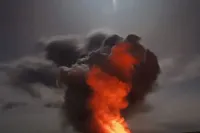Maduro and the drug trade, Trump and US interference, a mafia-style regime and human rights: what is happening in Venezuela? Activist Roberto Patiño explains
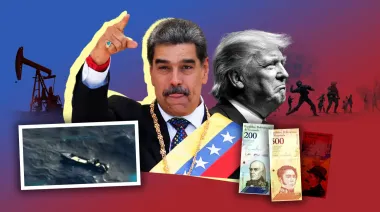
Venezuela is the country with the world's largest oil reserves. Once one of Latin America's richest nations, it has long been trapped in a political and humanitarian crisis.For over a decade, Venezuelans have lived under the authoritarian rule of Hugo Chávez's successor, Nicolás Maduro – a regime marked by economic collapse, censorship, mass emigration, and deepening dependence on Russia, China and Iran. While millions fled abroad, those who stayed faced repression and the systematic destruction of democratic institutions.
In recent years, the United States has alternated between sanctions and cautious engagement, between calls for democracy and pragmatic negotiations – a policy that often left Venezuelans uncertain whether Washington truly stood with them or merely sought leverage in the global energy market. That ambivalence might sound familiar to Ukrainians.
Yet in any conversation about Venezuela, it's impossible not to draw other parallels between these two resource-rich nations, trapped in battles for survival. Both are suffering from power cuts and water shortages. Both have watched the world's democracies vacillate between principle and pragmatism.
Venezuela shows how corruption and repression can hollow out a state from within – something Ukrainians should pay attention to in light of recent events.
To understand what it means to live in such geopolitical uncertainty – and what lessons Venezuela's struggle holds for Ukraine – Ukrainska Pravda spoke with Roberto Patiño, a Venezuelan democracy and human rights activist.
"When a regime weaponises chaos, every crisis becomes an opportunity to tighten its grip"
Let's start with the basics. For those in Ukraine who may not know much about Venezuela, could you describe the current situation in your country?
Venezuela was once one of the most prosperous democracies in Latin America. In the last two decades, it has become a textbook case of institutional decay. We have lived through hyperinflation, the collapse of basic services, and the violent dismantling of democratic institutions.
The humanitarian impact has been devastating: more than 8 million Venezuelans have left the country, including my own family. What began as an ideological "socialist" project evolved into a system of control where power is preserved through repression, disinformation, and the criminalisation of dissent.
I spent years working in the most vulnerable neighbourhoods of Caracas, building community kitchens and violence prevention programmes. Eventually, the government declared me a "CIA agent" and "terrorist", issued an arrest warrant, and forced me into exile. That is the reality for thousands of Venezuelans whose only crime is wanting a better country.
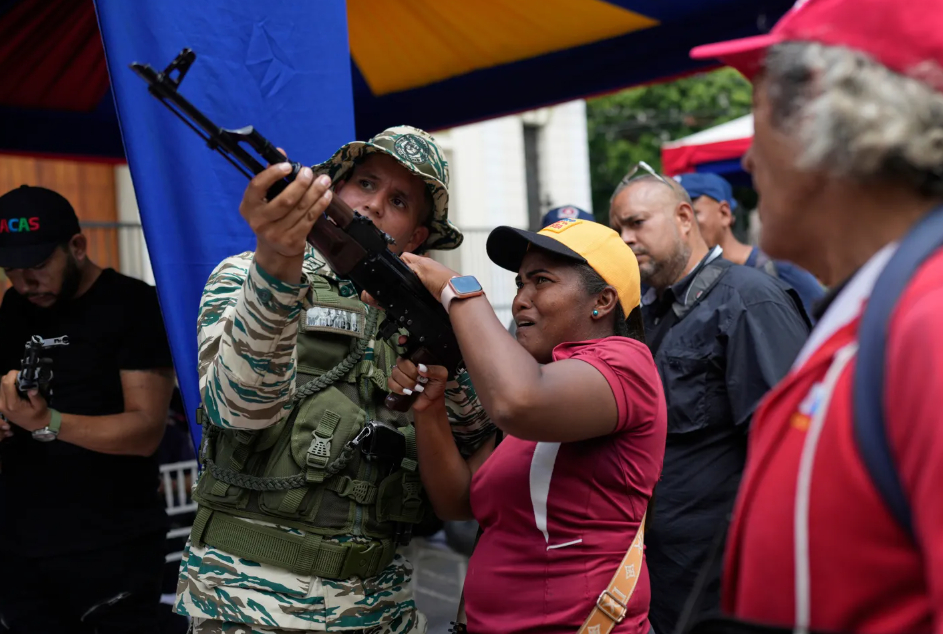
Are you still in touch with friends in Venezuela? What is daily life like in Caracas or Maracaibo?
Yes, I speak with friends and community leaders every week. Daily life is a paradox: people adapt and try to survive in abnormal conditions. In Caracas, you can see a "normality" on the surface – cafés open, traffic, kids in school (although public schools are not open every day) – but it sits on top of power cuts, water shortages, failing public transport, and skyrocketing costs. People rely on water trucks, cash-and-carry medicine, and WhatsApp networks to find basics.
Maracaibo is tougher: heat, blackouts, expensive fuel. Families rotate generators and share freezer space so food doesn't spoil. Everyone has a contingency plan, all the time.
Nicolás Maduro has been in power during all these years. How would you characterise Maduro's regime today?
The Maduro regime is an authoritarian, militarised and criminal regime. Power is concentrated in a small circle where loyalty is maintained through corruption and fear.
The elections last year were brazenly stolen. Institutions like the judiciary and electoral authority serve the regime, not the people. It's a system that survives by preventing change, not by earning legitimacy.
How do ordinary Venezuelans still organise and resist? How dangerous is it?
They organise quietly and locally: neighbourhood chats, church groups, unions, university circles. Resistance today is less about big street marches and more about micro-coordination – documenting abuses, getting medicine to a neighbour. It's risky. Surveillance is real – informants, phone monitoring, and targeted arrests. People reduce risk by keeping roles modular, using need-to-know channels, and leaning on diaspora support when the heat rises.
After we recorded this conversation, the news broke that the Venezuelan military is preparing a guerrilla response in case of a US attack.
The United States, in turn, launched a large-scale military operation near Venezuela under the pretext of combating drug trafficking. The U.S. administration makes no secret of the fact that the deployment of military forces is part of its strategy to pressure Maduro.
Opposition leader Edmundo González is in exile now, like many others. When Maduro secured his third six-year term, González said he had "crowned himself dictator". From your perspective, is it fair to compare Maduro's regime to those of Vladimir Putin or Alexander Lukashenko?
Yes – with nuances. Like Putin and Lukashenko, Maduro holds "elections", stealing the results, and uses the state's media and security apparatus to silence opponents.
What differentiates Venezuela is the scale of economic collapse. [Inflation peaked at 63,374.08% in 2018 and is estimated to be around 225% in 2026. GDP has fallen by 80% in less than a decade – ed.] Venezuela shows how authoritarianism and state failure can merge, with criminal networks controlling parts of the economy, including illegal mining and trafficking. The regime behaves like a mafia that controls a territory, not a government that serves a nation.
What do you mean by "criminal networks controlling parts of the economy"?
There are three layers. The first one: territorial gangs and prison mafias that tax local commerce, transport and construction – parallel "governments" with their own rules. Second: illegal extraction economies – gold and other minerals in the south, protected by armed actors. The environment and indigenous communities pay the price. And the third one: state-enabled rackets – fuel smuggling, import licences, and currency arbitrage handled by insiders. It's a political economy of loyalty: if you're loyal, you get access; if not, you're out.
Venezuela's economy used to rely heavily on oil exports. How hard do you think international sanctions hit it?
Sanctions hurt, but they did not cause the collapse. The economy was already imploding because the regime destroyed property rights, expelled independent media, and turned national oil production into a corruption machine. Venezuela's oil production had collapsed years before oil sanctions were imposed.
Sanctions limited the regime's access to cash, but the humanitarian crisis – hunger, lack of medicine, mass migration – іs the result of decades of mismanagement and corruption.
Earlier this year, Maduro declared a 60-day " economic state of emergency ", officially to "strengthen the national economy and counteract external pressure", particularly from the United States. What was really behind this move, and what impact has it had on people's lives?
It was political, not economic. Maduro manufactures "emergencies" to justify bypassing institutions and centralising more power.
For Venezuelans, these decrees mean more control, not more stability. Prices rise, services worsen, and uncertainty grows. When a regime weaponises chaos, every crisis becomes an opportunity to tighten its grip.
"There is a real opportunity for the US to help broker a transition"
Currently you live in the States, but I can't help but ask: how do you think Donald Trump's return to power could reshape US policy toward Venezuela, especially given his past focus on securing access to the country's oil? We have quite a similar story in Ukraine with the minerals deal .
Trump is unpredictable. One of the challenges in anticipating his policy toward Venezuela is that there isn't one coherent "Trump view" – there are multiple competing factions around him, each pushing different strategies.
Some people in his orbit have supported a harder line: maximum pressure, sanctions, and even the idea of using force. Others have focused more on transactional deals involving oil or migration, treating Venezuela as a bargaining chip. So we genuinely don't know where his policy will land.
For me, the key point is this: Venezuela's crisis is not a chessboard. It's about 30 million lives.
There is a real opportunity for the US, under any administration, to help broker a transition that is sustainable, peaceful, and anchored in democratic guarantees.
The goal should be a non-violent return to democracy, because that is the only path that will stop the migration crisis and allow Venezuelans to return home.
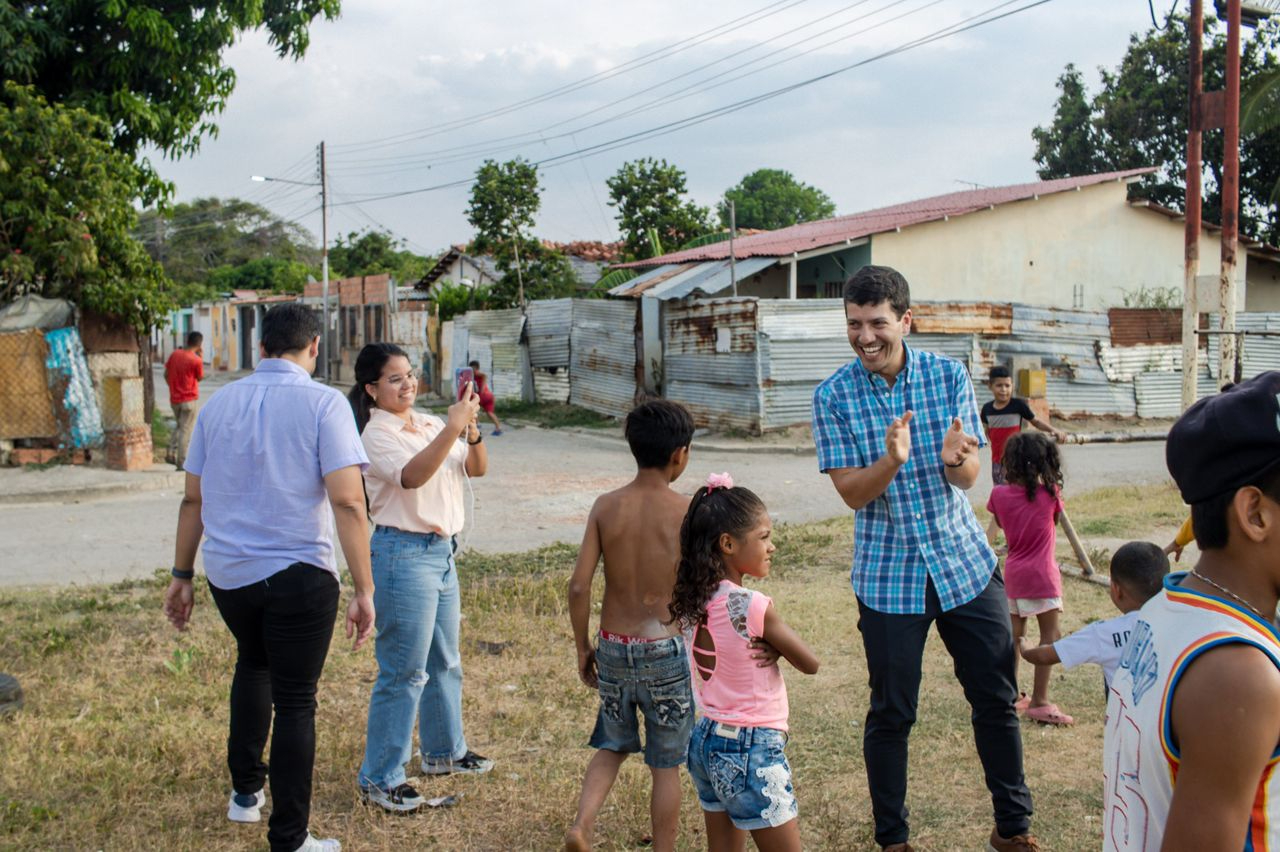
In recent weeks, US military strikes on Venezuelan boats and ships, allegedly aimed at curtailing the flow of drugs into the United States, have reportedly left dozens dead – an escalation that Trump has publicly confirmed, even though Congress recently voted against it. How is this covered inside Venezuela, and what's the public mood around it?
Inside Venezuela, people feel fear and confusion.
State-controlled media manipulates the narrative, presenting Maduro as a victim and the country as under attack. Independent media, which could give context, has been mostly silenced. Venezuelans are tired of conflict: what we want is a peaceful democratic transition, and that means Maduro has to leave power. What happens to independent media and those who speak out?
Inside the country: blocking, licence pressure, raids, and legal harassment – many journalists are political prisoners. Many outlets moved abroad; journalists operate in hybrid mode – some in exile, some inside using VPNs, all facing intimidation. Activists live with summonses, travel bans, or worse. Despite this, they keep reporting and documenting. The courage is extraordinary.
It's been reported that Maduro is willing to resign in exchange for immunity guarantees from Trump. Do you believe such a deal is realistic?That's what the vast majority of Venezuelans want.
What do you think would be the minimum credible guarantees for this kind of deal?Three things. The first one is security guarantees for regime insiders – to reduce their fear of punishment. That doesn't mean impunity for human rights violators. Second: institutional guarantees – a transitional government with international backing. And electoral guarantees – independent electoral authority, international observation, and full rights for candidates.
Without these elements, no deal will stick.
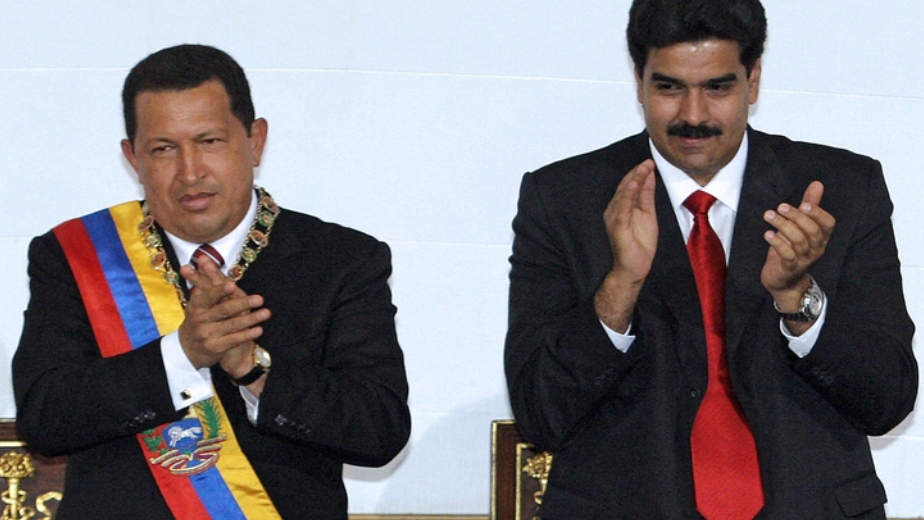
How can chaos or revenge politics be avoided after Maduro?
You need rules before rulers. A transitional pact with guarantees for Chavistas that didn't violate human rights. Sequenced justice: urgent crimes first, a truth-telling process with international support, and clear lines between political and grave criminal accountability. Real democracy, including deep decentralisation so no faction "wins everything". Fast economic stabilisation (food, power, transport) to buy social peace while institutions are rebuilt.
"Maduro is not a strategic equal – he is a client"
How do Colombia and Brazil position themselves towards Maduro? How does migration influence neighbouring countries?
Both prioritise stability and dialogue, even when they criticise abuses. They've tried to host or encourage negotiations because millions of Venezuelans now live in their cities – without success.
My view is that they haven't done enough. Migration has stretched schools, clinics and housing, and it's become a domestic political issue in Colombia, Brazil, and far beyond.
The lesson for the region is simple: there's no migration solution without a Venezuelan democratic solution.
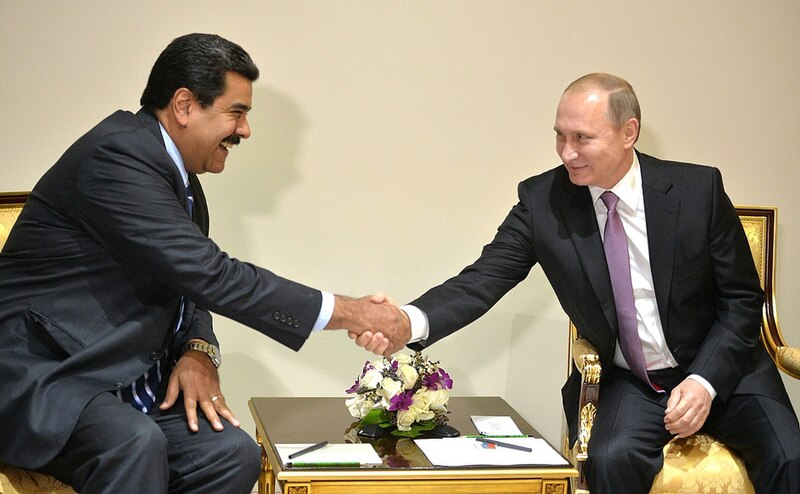
Given Maduro's isolation from the US and Europe, he has long sought support from Russia and China. How strong are those relationships today? How dependent has Venezuela become on Moscow and Beijing?
Transactional and self-serving. Russia and China are lifelines for the regime – economically, militarily and informationally. Russia provides geopolitical cover; China provides financial oxygen.
Maduro is not a strategic equal – he is a client.
How active is Russia's influence in Venezuela's information space – and what tools does the regime use to control narratives?Very active. Russian influence penetrates state media, diplomatic messaging and digital propaganda.
The regime also uses Russian tactics: distort reality, overwhelm the information space, create confusion. When people cannot distinguish truth from lies, apathy becomes a tool of control.
"AI is a historic opportunity for civil society to scale hope faster than fear"
Given the reports of AI-driven disinformation campaigns in Venezuela, how do you see the role of new technologies – including AI – considering the fact that you yourself are now working with AI? Do you believe civil society could "flip" this technology, using it to strengthen democracy rather than undermine it?
Absolutely. Disinformation spreads at machine speed, but so can truth and mobilisation. In my work, we have used AI to empower communities to organise, monitor elections, counter disinformation.
Technology is neutral. It can be used to oppress or to liberate. I believe AI is a historic opportunity for civil society to scale hope faster than fear. Can you share a specific example of how AI has already been used successfully, maybe in your practice?Last year, when the regime suddenly changed hundreds of voting locations before the opposition primaries, we built an Instagram/WhatsApp bot using AI that helped citizens instantly find their correct voting centre and learn how to organise for election monitoring. We had over 300,000 users. It reached people in places where traditional media no longer operates, and it gave ordinary citizens a tool to stay informed and coordinated despite censorship.
Another inspiring example came from Venezuelan journalists who created an AI-generated news anchor to share verified information on social media without exposing real reporters to risk. It was creative, practical, and lifesaving – a way to tell the truth when telling the truth can get you jailed.These experiences show how technology, when used ethically, can help level the playing field – giving people back access to truth, coordination, and voice, even under authoritarian control.
"Venezuela is not a lost cause"
Finally, Venezuelan opposition leader María Corina Machado recently received the 2025 Nobel Peace Prize "for her tireless work promoting democratic rights and a peaceful transition from dictatorship to democracy". How was this prize perceived by Venezuelan opposition figures, including you?
With pride and vindication.
Her award is a recognition of a struggle that millions of Venezuelans have carried for decades. It honours not only her courage, but the courage of every person who stood in line to vote knowing the regime was trying to steal the election. It reminds the world that Venezuela is not a lost cause.
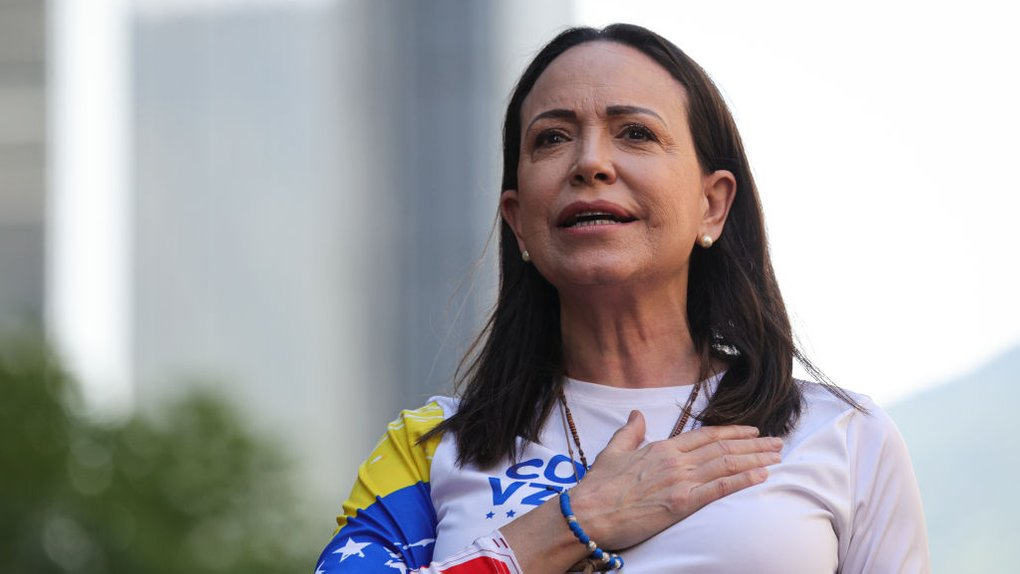
Do you see her recognition as a real sign of change or just a symbolic gesture?
It is symbolic – but symbols matter.
Symbols keep a cause alive when the world wants to move on. They restore morale when people are exhausted. And they increase the cost for dictators to keep repressing.
In Ukraine, humour is a coping mechanism. What keeps Venezuelans from giving up?
Humour, music, baseball, faith, and family. Also the everyday heroism I've seen in communities: mothers who share the little they have; teenagers mentoring kids after school. Authoritarians can shrink your options, but they haven't killed our capacity to care for each other. That stubborn hope is our renewable energy.
What could Ukraine learn from Venezuela about sustaining international attention?
I would start by saying that Venezuelans have a lot to learn from Ukrainians too, especially from their extraordinary courage and unity in the face of aggression. The way Ukraine has defended its sovereignty, and managed to keep the world's attention focused, is remarkable.
That said, if there is something Venezuela's experience can offer, it's that we've learned that international attention must be constantly renewed – through human stories, not just political statements. You have to show the world how a long crisis reshapes people's daily lives, and how its consequences spill across borders through migration, energy and security.
Another lesson is the importance of building broad values-based coalitions – not only between governments, but also between civil society, journalists, and diasporas. Those networks are what keep an issue alive even when geopolitical winds shift.
In the end, both Ukraine and Venezuela are fighting different versions of the same battle – to prove that truth, dignity and democracy are stronger than fear, brutality and force.
***
And as Roberto Patiño says, "when people can no longer distinguish truth from lies, apathy becomes the enemy of freedom". That may be the most universal warning of all – and the reason neither Venezuela nor Ukraine can afford to give up on truth.
Support Ukrainska Pravda on Patreon.
Alina Poliakova, UP







